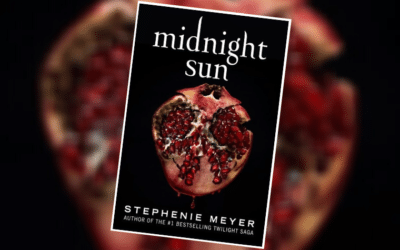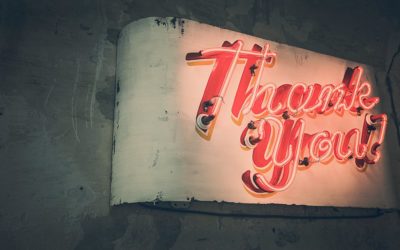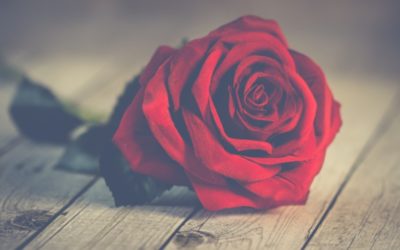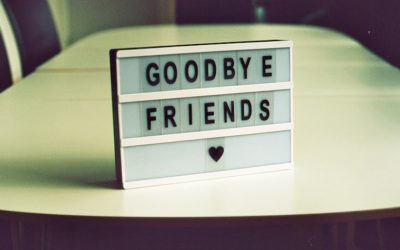TW: This article does mention homophobia and suicide.
It’s officially Pride Month – or as I like to call it, Straight People Demand a Parade Month – and it’s time to crank the tunes. Let’s drown out the political hellscape of inequality together!LGBTQ history, like many a minority, has a strong tie to music. Over the decades our subculture has crafted a few different flavors. The most common of which I tend to lovingly describe as 2003 Techno Pop in a 2007 Night Club. It’s either that or playlists with some variation of Cher, Lady Gaga and numbers from musicals. Maybe some Katy Perry. While there’s nothing wrong with that, our musical tastes and history go beyond the same playlists we’ve been blasting for a decade.
With the help of my That’s Normal pals I’ve crafted a playlist that showcases the diverse sounds of our community. It’s fun, it’s mostly chill, it’s not always overtly LGBTQ but every artists is or at least one member of the band is. (Youtube Playlist here)
If you dig it and want more check out the Master Playlist. It has so much genre jumping it’ll give you whiplash. There’s hip hop, there’s country, there’s indie, there’s punk. There’s just… a lot.
June is a time of celebration, but I believe it’s paramount to acknowledge the history that’s led us here.
Celebration comes after the price has been paid. Here’s a handful of artists who paid that price.
Big LGBTQ Moments in Modern Music (2010s)
The early 2010s saw strong progress in diversifying genres via out artists and allies. In just a few short years, the industry seemed to progress at lightning speed.
Let’s recap.
R&B and Loving Men
Frank Ocean‘s debut studio album Channel Orange dropped in 2012 and blew up the R&B scene. Known to be a particularly rough landscape for queer artists, Ocean identifying as something other than straight was groundbreaking. (Read his response to the Orlando shooting, religion and homophobia.)
Articles even discussed whether Channel Orange was good enough to overturn homophobia in the industry. The album is exceptional, but no single piece of music should be expected to dismantle a decades old trope. It did, however, make an unforgettable impact.
Along with leaving his mark on hip-hop, Frank Ocean opened up a line of communication between LGBT people and the genre, specifically for people of color.
Ocean went on to collaborate with artists like Beyonce, JAY Z, John Mayer, Calvin Harris and Tyler, The Creator. The question in all of those 2013 think pieces was answered: yes you can succeed as a queer, black man in music (not that it’s easy though).
The Ellen DeGeneres of Country Music
In 2010, Chely Wright broke cultural norms in a separate music scene. The country singer came out as a lesbian during a People interview after struggling for years with her sexual orientation. The news meant that Wright would become the genre’s first openly gay performer.
Blacklash was brutal. Sales declined, death threats were sent and many in the industry remained tightlipped. A handful of artists did offer a kind word but through private communication. According to an interview with The Boot Mary Chapin Carpenter, LeAnn Rimes and SHeDAISY were the only acts to publicly offer support.
Wright remained resilient.
Based on an interview with Newsweek, coming out was worth the risk. Four years before Wright came out, she found herself standing in front of the mirror in her foyer. The slightest movement of a finger stood between ending it or continuing to fight. She put the gun down.
The following years saw a few more country singers come out, such as Ty Herdon and Shane McAnally. While country remains a battlefield for LGBTQ listeners, progress has been made thanks to brave pioneers.
Punk As Fuck
While Frank Ocean was shaking up R&B, punk was experiencing its own iconic LGBTQ moment. In 2012 Laura Jean Grace, the lead singer of Against Me!, shared her long battle with gender dysphoria with Rolling Stone. At the time of this interview Against Me! had been playing for 15 years. The question of how fans would react seemed valid, but Grace told Rolling Stone that she had faith in them. Plus, it really shouldn’t come as a shock to anyone who’s listened to her lyrics. Grace had been dropping bread crumbs for year. Surprisingly, though, band-mates and fans alike missed most of the clues.
When she did come out and start transitioning, the band stood behind her. There were other struggles though. Fans in the audience may have been on her side, but what about security guards? Venue staff? Gas station attendants?
Grace’s bravery to come out and share her transition so publicly can’t be understated. While she wasn’t the first out artist in punk, she’s likely the most visible. 
Grace has continued to perform with Against Me! as an openly trans women. In 2018 she released Bought to Rot with her second band Laura Jane Grace & the Devouring Mothers.
Lesbian Jesus
20gayteen was a blessed time to be on Tumblr. It was a blur of Wayhaught gifs, uncensored nudity and Queer Eye think pieces.
It was also a… religious experience one might say.
https://thegayshitposter.tumblr.com/post/184845691290/me-in-church-i-love-jesus-me-alone-in-my-room
Her first sapphic song may have dropped in 2015, but 2018 was the year that pop singer Hayley Kiyoko caused the gayest, most millennial panic this side of the 21st century. Fans dubbed her “Lesbian Jesus” but Kiyoko wasn’t always open about her sexuality.
Although she knew she was gay since childhood, the singer was cautious about telling friends. As for singing about it? That was something Kiyoko never thought the music industry would embrace (PAPER).
The 2015 release of “Girls Like Girls” was a personal story, but the singer told PAPER that she kept some distance between the song and herself. Friends were cast in the roles of the two teen girls. The success of “Girls Like Girls” emboldened Kiyoko to take another step forward. The next song she directed and appeared in herself.
Now she’s dodging bras and opening for Panic! at the Disco. Sometimes life works out.
 Now, coming out in the pop scene may seem like a small feat. The knee-jerk reaction is to label Hollywood and pop music as decisively liberal. But consider the number of singers you can think of who are gay. Now how many of them are a person of color? Kiyoko’s visibility matters beyond sexual orientation.
Now, coming out in the pop scene may seem like a small feat. The knee-jerk reaction is to label Hollywood and pop music as decisively liberal. But consider the number of singers you can think of who are gay. Now how many of them are a person of color? Kiyoko’s visibility matters beyond sexual orientation.
Names Worth Knowing & Recognizing
Above is a just a snapshot of the intersection of LGBTQ culture and music. These nine years of rad anthems and groundbreaking moments wouldn’t be here without the work of earlier artists. A Pride-themed music post wouldn’t feel complete without a shoutout to Queen/Freddie Mercury, Elton John, Joan Jett, the Indigo Girls, Ani diFranco, Melissa Etheridge and about a billion more names. Do a Google search.




